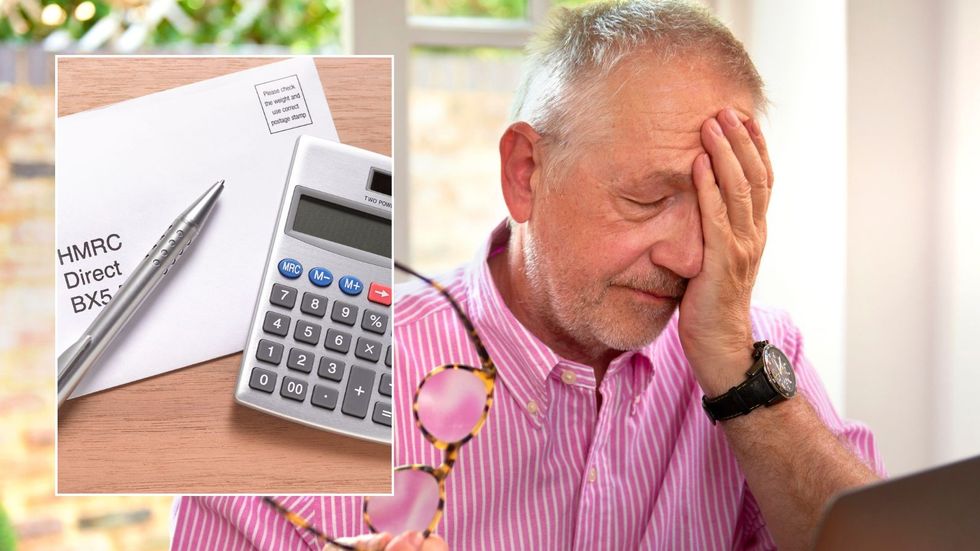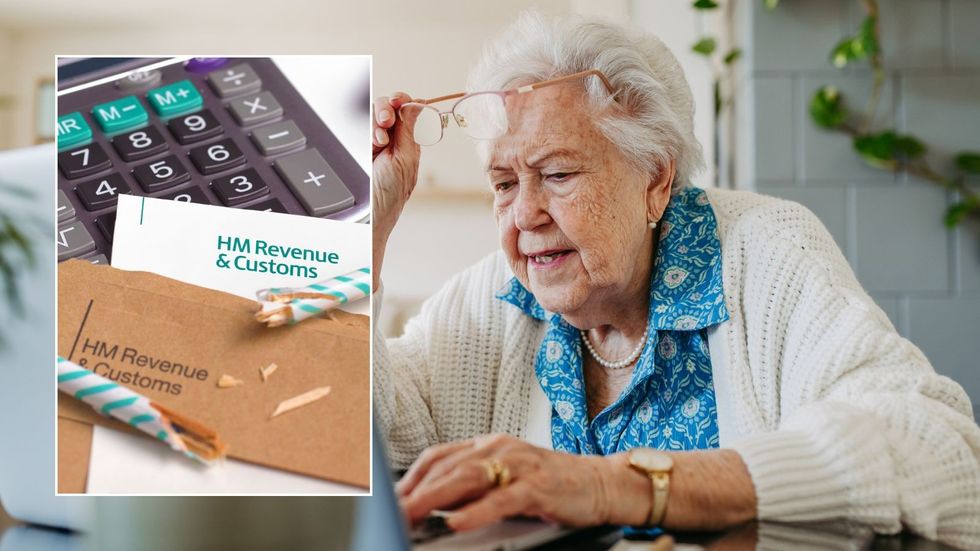Cheshire pensioners claim the Labour Government 'doesn't care' as pension rates increase
GB NEWS
Analysts are breaking down how the state pension triple lock will result in retirees paying more tax as an effect of fiscal drag
Don't Miss
Most Read
Trending on GB News
Analysts are sounding the alarm that nearly half of new taxpayers living in the UK will be pensioners by 2027 unless the Labour Government takes action.
Millions of pensioners could soon face income tax for the first time without even realising it due to the impact of frozen allowances, experts warn.
Personal finance expert Fiona Peake from Ocean Finance has warned that a combination of frozen tax thresholds and rising pension payments is silently pushing more retirees into the tax bracket.
This stealth tax situation is developing as the state pension continues to increase annually thanks to the triple lock while the personal allowance remains fixed at £12,570.

More pensioners are in line to pay tax by 2027
GETTY
"Nearly 18 million more people are expected to be paying income tax by 2027, and almost half of them will be over 60," explains Peake.
The impact of fiscal drag creates a particularly difficult situation for pensioners who may have carefully budgeted for retirement without anticipating this additional tax burden.
As it stands, the full new state pension now pays £221.20 a week, which amounts to around £11,500 a year. This figure sits just a few hundred pounds below the personal allowance threshold of £12,570.
"Add even a modest private or workplace pension, and suddenly you've got a tax bill," warns Peake.
 Pension pots are at risk of being liable for paying extra taxGETTY
Pension pots are at risk of being liable for paying extra taxGETTY Peake highlights how this tax change is happening without fanfare. "The frustrating thing is, this is happening quietly. It's not a tax rise on paper, but it feels like one in practice."
Many pensioners will simply receive a letter or notice a tax code change without understanding why they're suddenly being taxed.
"It's especially tough for those on a fixed income who are already watching every penny," notes Peake.
With inflation expected to rise again this year, despite the consumer price index (CPI) rate falling to 2.6 per cent in March, this represents yet another financial challenge for pensioners.
To help pensioners navigate this tax challenge, Peake offers several practical tips.
"If you've got a defined contribution pension, think about how you take money out. Spreading withdrawals across tax years, instead of taking a large lump sum, can help keep your income below the threshold," she advises.
Marriage Allowance is another opportunity for savings.
"Married couples or civil partners could save over £250 a year if one earns less than the personal allowance. If one of you isn't using all your tax-free allowance, transfer some of it."
Peake also recommends maximising ISA allowances to protect savings from tax. "ISAs protect your savings from tax, including interest and dividends. With savings rates still decent and inflation coming down, it's a good time to build up your ISA pot," she says.
LATEST DEVELOPMENTS:
 Pensioners are worried about their future GETTY
Pensioners are worried about their future GETTY Delaying the state pension could be another strategy worth considering, according to the retirement expert.
"For every year you delay, it goes up by nearly 5.8 per cent, and that higher amount is paid for life. It could be a smart way to increase your future pension without triggering tax straight away." Checking tax codes regularly is another important step Peake recommends.
"HMRC doesn't always get tax codes right, especially if you've got more than one income. A wrong code could mean you're paying too much," she cautions.
For those still in employment, increasing pension contributions offers dual benefits. "Adding more into your pension can be a clever move. You'll reduce your taxable income, get tax relief on your contributions, and boost your retirement pot at the same time. It's one of the few ways to shrink your tax bill now and benefit later."








